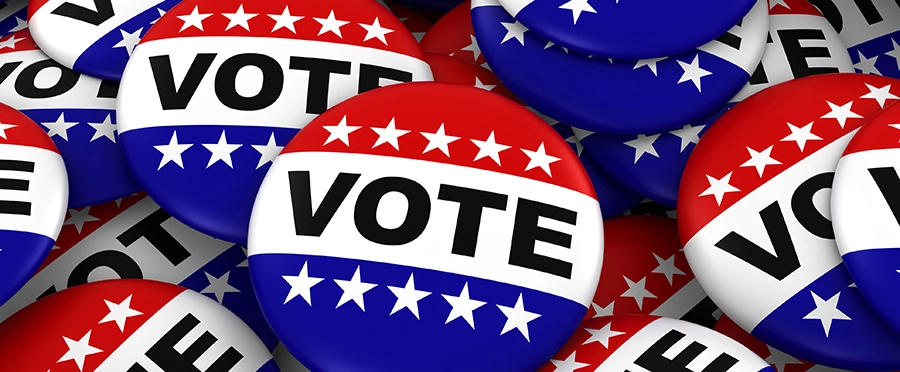Does the Johnson Amendment Censor Politics at Your Church? Should You Care?

Introduction.
Almost 70 years ago in 1954, the United States Congress approved an amendment by then-Senator Lyndon B. Johnson to prohibit 26 U.S.C. Section 501(c)(3) organizations from engaging in any “political campaign” activity. Who is included in 501(c)(3) organizations subject to the law? Churches, private schools, ministries, and other nonprofit organizations. Throughout this post, we will refer to churches, but the rules and guidance are generally applicable to all 501(c)(3) organizations.
Current Law.
Under current law, a church (as a 501(c)(3) organization) may “not participate in, or intervene in (including the publishing or distributing of statements), any political campaign on behalf of (or in opposition to) any candidate for public office.” As detailed here, explaining exactly what constitutes prohibited “political campaign” activity is not always so clear.
Executive Order to the Rescue? No, Not Really.
Many churches felt comforted when President Trump issued an Executive Order in 2017 directing all federal executive departments and agencies “to the greatest extent practicable and to the extent permitted by law, respect and protect the freedom of persons and organizations to engage in religious and political speech.” Specifically, the Executive Order instructed the Department of Treasury (the federal department over the IRS) to avoid taking any “adverse action” against any individual, church, or other religious organization speaking on moral or political issues from a religious perspective if similar prior speech has not generally been treated by the Department of Treasury as participating or intervening in a “political campaign” on behalf or against a politician.
Regardless, the Executive Order remains just that – an executive order directing certain federal authorities to effectively avoid enforcing violations of the Johnson Amendment. Thankfully, from a historical perspective, the IRS and other federal authorities rarely enforce the political campaign prohibition and seem reticent to enforce it with zeal.
Potential Significant Adverse Results of Violating the Johnson Amendment.
However, the current law is the law. A Church must comply with the Johnson Amendment if the church wants to avoid the federal government from imposing those potential “adverse actions.” Such actions include excise taxes levied against the church, the loss of the church’s federal tax-exempt status, and a civil injunction against the church.
What Does the IRS Say My Church Can Do in the Political Campaign Arena?
So, is there anything a church can do under the Johnson Amendment? Based on prior IRS intervention related to prior church “political campaign” activity, here is a brief list of activities that the IRS deems acceptable for a church to do (think about all the facts you could add to these listed items that might make everything uncertain again):
- Provide a nonpartisan forum for all candidates running for certain public offices to address the church while showing no bias toward any individual candidate.
- Invite all candidates for a certain public office to address the church while informing all in attendance that the candidate’s comments are his own.
- Offer a specific candidate the opportunity to speak at the church in a noncandidate capacity (e.g., as a member of the church, as a general public figure, as an expert in a separate nonpolitical area, etc.).
- In this situation, there is no need for the church to provide all other applicable candidates equal access to the same opportunity. The church must ensure that the candidate speaks only in his noncandidate capacity, no campaign activity occurs at church, and all guests are aware of these elements.
- Permit the church pastor, pastors, or other church employees to make public comments about a pollical campaign if the comments are not on church property and accompanied with a statement that the comments are personal in nature and not representative of the church.
- Allow a pastor to attend a press conference at a political candidate’s headquarters and even promote the candidate’s reelection if the pastor is clear that he is speaking in his personal capacity and not as pastor of the church.
- Conduct a neutral voter registration drive.
- Distribute a summary or compilation of the Congressional voting records of political candidates with no editorial content or suggestive presentation of the material approving-disapproving certain candidates.
What Has the IRS Prohibited Under the Johnson Amendment?
Here is a list of church activities that should be avoided because the IRS has deemed them to be in clear violation of the Johnson Amendment and thus valid reasons for inflicting upon a church any or all applicable adverse actions (and as before, think about all the facts you could add to these listed items that might make everything uncertain again):
- Church contributions to political campaign funds.
- Fundraising for a candidate.
- Official, public church statements (whether verbal or written) supporting or opposing a political candidate.
- Here, a church should avoid such written statements in the church’s bulletins, websites, and emails; and such verbal statements at official church events.
- Inviting only one candidate to address the church.
- Formally endorsing a candidate.
- Using church social media to support or oppose a candidate.
- Publishing advertisements supporting or opposing a candidate.
- Distributing a voter guide that demonstrates a bias toward a specific candidate.
- Promoting, requiring, or permitting church employees to participate in political campaign activities during and within their church employment duties.
- Failing to formally disavow the political campaign activities of a church pastor or employee who has “apparent authorization” to represent the church.
Conclusion.
The Johnson Amendment continues to plod along after seven decades with no real current risk of removal from federal law. As this brief summary shows, the list of permitted and prohibited activities seems about as clear as mud in many respects.
We urge you to contact your legal counsel with any questions about a church’s foray into political campaign activity. In this way, the church can gain a better understanding of the very nuanced aspects of the Johnson Amendment and the IRS enforcement of the same.


